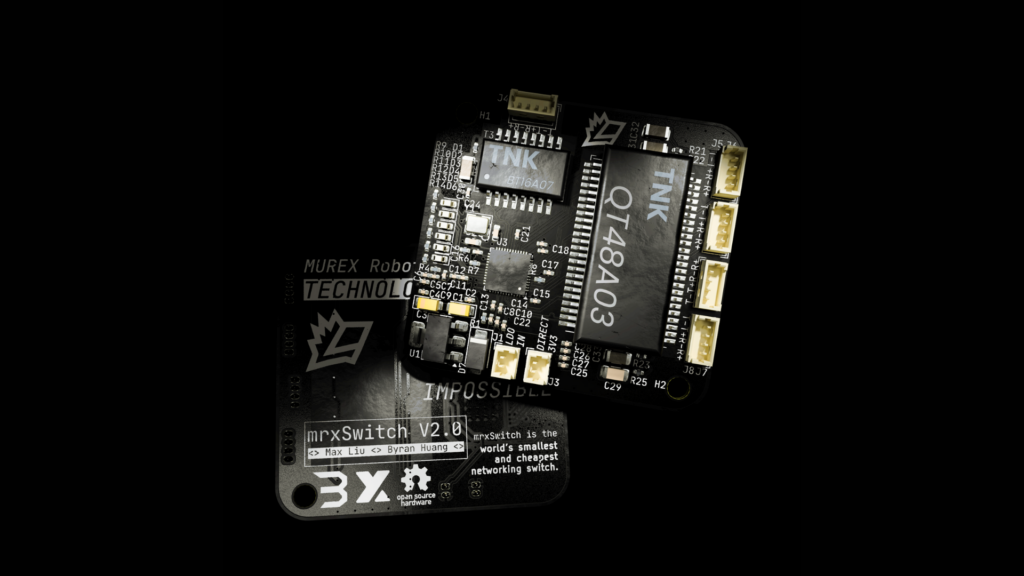When you purchase through links on our site, we may earn an affiliate commission. Here’s how it works.
High schoolers shave more than 90% of the price and some of the footprint off of professional solutions.
Whatever you were doing in high school, it probably wasn’t this cool. Murex Robotics, the underwater robotics team of Phillips Exeter Academy in Exeter, New Hampshire, has created what it claims is the world’s smallest network switch, and for significantly less money than any of its larger counterparts.
Designed for use in a remotely piloted underwater rover, the mrxSwitch v2.0 supplies five 100 Mbps Ethernet ports at a footprint of only 44.9mm by 42.2mm. Network switches of this form factor are typically reserved for highly embedded systems; the team prioritizes its use in remote-operated underwater vehicles (ROVs) or autonomous underwater vehicles (AUVs), but IoT devices and other consumer devices with space constraints may have use for network switches this small. The switch in Murex’s case can allow a Raspberry Pi, NUC, or other computer to communicate with IP cameras, driver motors, or any of the rest of its tools to operate a robot underwater.
The five beige 4-pin connectors on the board are the network ports, using the Molex PicoBlade connection to save space, as multiple RJ-45 ports would dwarf the tiny board. The integrated chip onboard doing the switching is smaller than a fingernail, and the largest component, a dual-port transformer, is barely longer than a knuckle. The mrxSwitch v2.0 represents a 30% size reduction over its predecessor, along with a BOM cost reduction of 15%, even with its smart-looking custom PCB.
Murex Robotics competes in high-school underwater robotics competitions in the MATE ROV Competition’s Ranger division. Space is at a premium within the waterproofed capsule of the robot, necessitating tiny components. Most solutions for network switches of this form factor are priced at a premium due to the narrowness of the use case, with MATE-sponsored options running from $75 to $175 — hence the decision to engineer an original solution. The mrxSwitch v2.0 stands at a current BOM price of $7. While you might not see it used in our best network switches (at least not yet), the build is a serious triumph for the young team.
For a deeper dive into the team’s development process of v1.0 straight from the creators, be sure to read the team’s own development blog. The 100 Mbps speed is pretty slow for today’s rocket-fast standards, but at least you’re only paying $7 for it. Lest we forget, some audiophiles were sold on a $4,349 “audiophile grade” network switch running fewer ports at the same speed last year.
Get Tom’s Hardware’s best news and in-depth reviews, straight to your inbox.
ASRock PG27QFT2A 180 Hz gaming monitor review: Serious performance and value
Revolutionary Samsung tech that enables stacking HBM memory on CPU or GPU arrives this year — SAINT-D HBM scheduled for 2024 rollout, says report
$7 MicroMac project recreates a Macintosh 128k on the Raspberry Pi Pico
Tom’s Hardware is part of Future US Inc, an international media group and leading digital publisher. Visit our corporate site.
©
Future US, Inc. Full 7th Floor, 130 West 42nd Street,
New York,
NY 10036.


